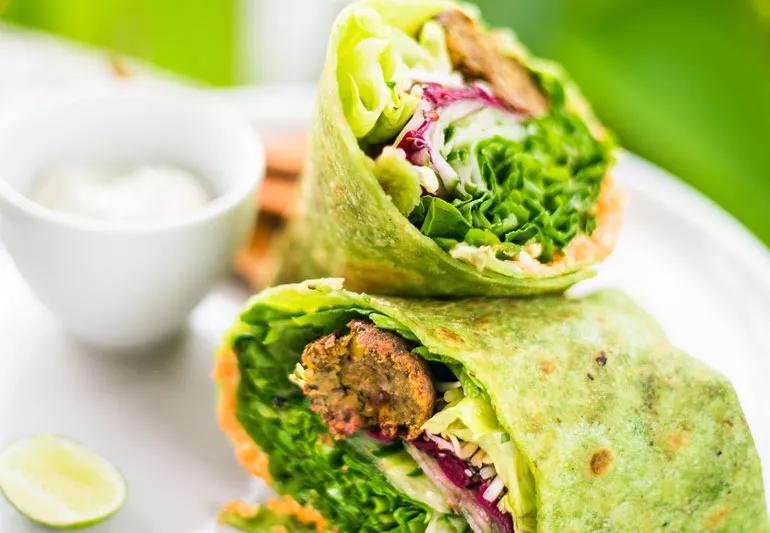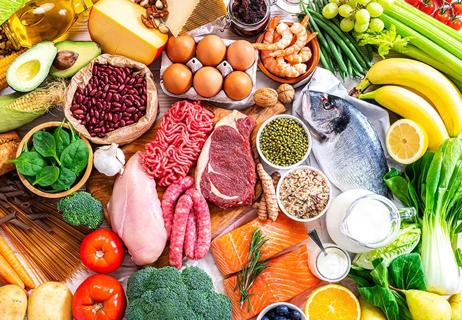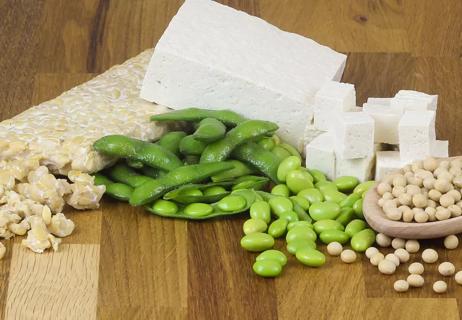It’s possible to drop a few pounds as long as you watch what you eat

You might choose to be a vegetarian for a variety of reasons: To be healthier, to help the environment or because you love animals.
Advertisement
Cleveland Clinic is a non-profit academic medical center. Advertising on our site helps support our mission. We do not endorse non-Cleveland Clinic products or services. Policy
A vegetarian diet can be lower in calories and saturated fat and higher in fiber, which can, in turn, lower your risk of diseases like heart disease, diabetes and cancer.
And while it can also help reduce your risk of obesity, it can be hard to lose weight if you make a few missteps.
“Vegetarian diets, although heart healthy, can make weight loss challenging due to their high percentage of calories from carbohydrates,” says registered dietitian Julia Zumpano, RD.
It’s possible to lose weight with a vegetarian diet, but it takes some effort.
Zumpano shares what you might be doing wrong and how to adjust your diet to lose weight.
While the main factor with a vegetarian diet is not eating meat, there are a few variations. Here are the three different kinds of a vegetarian diet:
“Given the restrictive nature of a vegetarian diet, it’s important to be sure that you’re still consuming adequate nutrients that are more readily available in animal sources like calcium and B12,” says Zumpano.
Advertisement
People whose diet is higher in fat, moderate in protein and very low in starch and carbs tend to fare better with weight loss.
In fact, an analysis of 53 randomized, controlled trials found that people on low-carb diets did much better with long-term weight loss than people on low-fat diets. People on high-fat diets also did better than people on low-fat diets — because they ate fewer carbs.
Many studies confirm that your lean body mass increases when you eat good-quality protein and fat and decreases when you eat starch and sugar.
Here are some reasons why you might not be losing weight on a vegetarian diet.
Vegetarian sources of protein including beans, legumes, nuts and seeds are high in overall calories when consumed in large quantities.
“In order for a vegetarian to meet protein needs, these foods need to be eaten in larger volumes than meat,” says Zumpano. “For example, a 4-ounce piece of lean meat provides about 200 calories and 28 grams of protein. To obtain that same amount of protein from beans you would need to consume more than 2 cups of cooked beans, which provide close to 400 calories.”
It’s the same issue with nuts: 1 ounce of nuts provides 200 calories and the equivalent protein to a 1-ounce piece of lean meat, but the meat is only 55 calories.
“That being said, when consuming beans, treat these as your source of protein and carbohydrate in the meal. Avoid including another carb like potatoes, pasta or rice,” advises Zumpano. “Instead, allow yourself a greater amount of beans to be able to better meet your protein needs.”
Another great tip is choosing vegetarian sources of protein that don’t contain as many carbs like tofu, seitan, tempeh or dairy products like Greek yogurt, cottage cheese, ricotta cheese and eggs or egg whites.
Yes, you can eat carbs on a vegetarian diet. But the mistake many of us make is consuming too many refined carbs. Yes, we’re talking about pizza, pasta and bread.
Those options lack fiber and tend to leave you still feeling hungry. Therefore, you tend to eat more of them.
Instead, focus on eating sweet potatoes, butternut squash, oatmeal, beans and lentils. These complex carb options, which are full of fiber, are better because they don’t cause your blood sugar to spike as quickly.
“It’s OK to enjoy an occasional slice of pizza or bowl of pasta, but keep your portions down when you do and always include a protein source and plenty of vegetables to keep you full,” Zumpano says. “For example, make a pasta primavera dish with various veggies and throw in some chickpeas or lentils for protein. Try a veggie pizza with fresh mozzarella and have a side salad.”
Advertisement
While you’re on a vegetarian diet, you may turn to foods that are naturally high in fat like nuts, nut butter, seeds, avocados and coconut to keep you fuller and more satisfied. These foods are nutritious and filling. Although a little goes a long way, so calories can add up quickly.
“Keeping a log of what you eat and drink can help you determine which foods are providing you extra fat and calories that could be inhibiting weight loss,” says Zumpano. “Consider an app to track calories or use a notebook to keep track.”
When you cut out eating meat, you’re more likely to eat more processed foods.
Though foods like granola bars, chips, vegan cream cheese and yogurt and meat substitutes like meatless burgers, sausages, veggie nuggets and breaded patties are considered vegetarian, they can be loaded with additives, added sugars, sodium and preservatives.
“These foods are convenient and tasty,” says Zumpano. “Logging your caloric intake can help you include these foods in moderation, while not exceeding your needs.”
So, what positive changes can you make to help with your weight loss journey? Here are a few suggestions:
Advertisement
Following a vegetarian diet is a healthy option. And it can be easier to follow than you might think, with plenty of recipes and cookbooks available.
And with some thoughtful planning and tweaks, you may even lose weight. (Don’t forget that exercise and sleep are also important!)
“Eating whole foods from mainly plants has been proven to have several short- and long-term health benefits despite the effects on weight,” adds Zumpano. “You’re improving your health from the inside out following a plant-based diet.”
Advertisement
Learn more about our editorial process.
Advertisement

A nutrient-packed diet driven by fruits and veggies can lower certain health risks

What to know about this semi-vegetarian lifestyle

Turn to these foods for plant protein

Lifestyle changes can bring a slight metabolic boost and health benefits

A consistent walking program is an effective way to drop pounds and lose body fat

This diabetes medication can treat obesity, but it’s not for people who just want to drop a few pounds

Successful weight loss takes a long-term commitment — build a healthy lifestyle you can stick with

Opt for snacks that have protein, fiber and healthy fats to prevent cravings and keep you feeling full and satisfied

Wearing a scarf, adjusting your outdoor activities and following your asthma treatment plan can help limit breathing problems

Your diet in the weeks, days and hours ahead of your race can power you to the finish line

When someone guilt trips you, they’re using emotionally manipulative behavior to try to get you to act a certain way